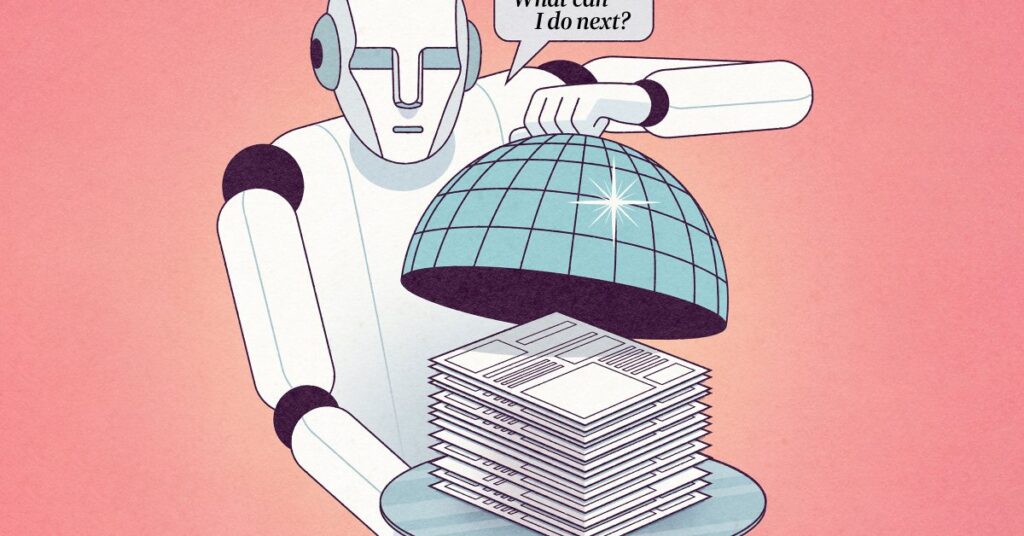Welcome to the Era of Autonomous AI: Transforming Work and Life
In recent years, we’ve all marveled at the rapid advancements in artificial intelligence (AI). From its astounding language processing capabilities to its boundless creativity, AI has showcased skills that were once the stuff of science fiction. But what we’re witnessing is just the beginning. We’re now standing on the threshold of a revolutionary shift: the rise of autonomous AI agents that can take actions on their own, reshaping the very fabric of how we live, work, and connect with one another.
The Next Stage of AI: Beyond Predictions and Generations
Many of us are already familiar with "predictive AI," which analyzes data to offer recommendations and insights, and "generative AI," which uses patterns to create text, images, music, and more. However, AI agents are set to redefine the playing field. These intelligent software components can independently perform tasks, make decisions, and even negotiate on our behalf, representing a substantial leap from previous technology transformations that often required extensive infrastructure overhauls.
A New Era of Digital Labor
Imagine a large retail store bustling with activity during the holiday season. Instead of human staff or basic programmed software handling customer inquiries and stock management, intelligent digital agents will be at work. They can promptly respond to customer queries, monitor inventory levels, reorder stock, and coordinate shipping—all autonomously. This is the new scale of operations that AI agents facilitate, unlocking unprecedented capacity across various industries.
As companies adopt these intelligent agents, they gain the ability to transcend human limitations, thus vastly increasing efficiency, cutting operational costs, and enhancing responsiveness while freeing up human resources for more complex tasks.
Facing the Challenges Ahead
While the promise of autonomous AI is enticing, it also brings forth important challenges. We must ensure that AI systems are built on principles of trust, accountability, fairness, and transparency. Furthermore, as AI changes the landscape of our workplaces, it is vital to invest in enhancing the human skills that machines cannot replicate: creativity, critical thinking, and emotional intelligence.
Equally important is the focus on sustainability. As we embrace AI, we must commit to ecologically responsible practices to mitigate our carbon footprint. With proactive engagement on these fronts, we can imagine a future where an expanding digital workforce propels us toward abundance.
Personalizing Life with Intelligent Agents
The influence of AI agents extends beyond businesses. Imagine having a personalized tutor accessible 24/7—a digital companion that guides your educational journey, tracking your progress and adapting to your learning style. Or think about agents that effortlessly manage daily tasks, from ordering groceries to setting appointments.
Revolutionizing Healthcare
AI is also making significant strides in healthcare. Medical professionals are facing immense pressure, and AI agents can step in to lighten administrative loads. For instance, a leading healthcare system leveraged AI to enhance patient communication, allowing doctors and nurses to concentrate on what they do best—caring for patients. These agents can follow up on your health status post-treatment, remind you of appointments, and even manage your medical history—all with your well-being in mind.
The Economic Impact: Job Evolution, Not Demise
Every technological revolution brings change, and the rise of AI agents will surely redefine jobs across all sectors. While some roles may vanish, history shows that technology creates more jobs than it displaces. For example, in 1950, 43 million Americans were employed, which surged to over 152 million by 2020. The key is to equip the workforce with the skills needed for the jobs of tomorrow.
As regions experience stagnation in workforce growth, productivity and innovation will be crucial for economic vitality. AI-driven agents promise to amplify human labor, improving efficiencies that will contribute significantly to economic growth.
Fostering Innovation through AI
The potential for innovation is enormous. New AI companies are sprouting up continuously, reminiscent of the microchip’s birth that enabled tech giants like Apple and Microsoft. In the past decade alone, over 5,000 new AI companies have emerged in the U.S., bagging substantial investments and creating countless jobs.
However, while technology is not inherently good or bad, its impact is shaped by our decisions. Careful oversight and collaboration among businesses, governments, and academic institutions will be necessary to establish guidelines that ensure AI serves the greater good.
Conclusion: Embracing Change for a Brighter Future
Looking at the broader landscape, AI has immense potential to level the playing field—making resources once limited to a few accessible to many. For example, virtual college counselors are now assisting students, providing support that was once out of reach in underserved areas.
Whether it’s optimizing hiring processes or enhancing educational support, the transformative power of AI agents is undeniable. As we prepare for this exciting new era, the focus on trust and collaboration will be paramount for realizing this technology’s full potential.
The AI Buzz Hub team is excited to see where these breakthroughs take us. Want to stay in the loop on all things AI? Subscribe to our newsletter or share this article with your fellow enthusiasts.




